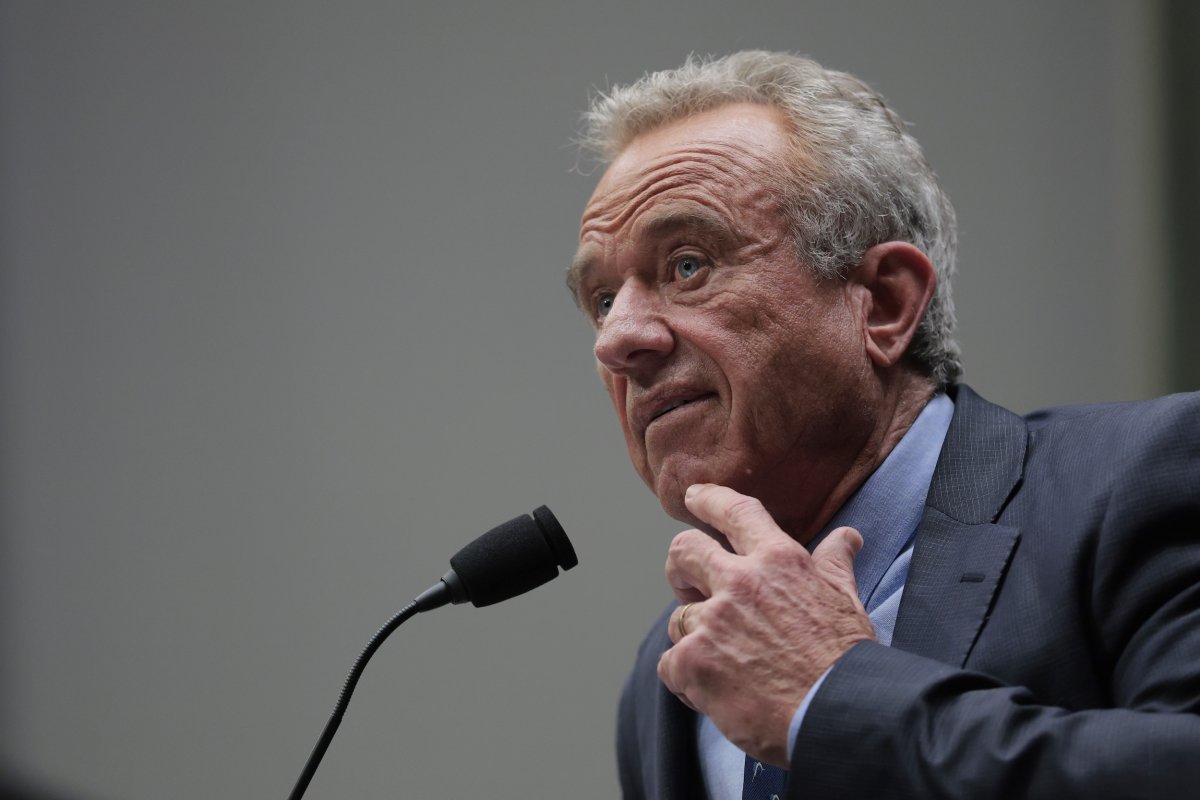In a decisive move to protect public health, Health and Human Services (HHS) Secretary Robert F. Kennedy Jr. announced the Food and Drug Administration (FDA) is phasing out several petroleum-based food dyes from American foods. Kennedy should build on this measure by also closing a longstanding loophole that allows food companies to quietly flood grocery stores with hundreds of unregulated additives.
In 1958, a new provision to the nation’s food safety laws required food manufacturers to request approval from the FDA before they include a newly developed additive in their products. However, the same provision created an alternative pathway, allowing manufacturers to insert new additives without FDA oversight if the ingredient is “generally recognized as safe” (GRAS) by food scientists. Companies that label an additive as GRAS may inform the FDA of its use in their products, but they have no legal responsibility to do so.
Congress originally intended the GRAS pathway for widely known ingredients such as nutmeg and paprika. But large food manufacturers have exploited this loophole, flooding the market with new industrial additives—without proof they’re safe for consumers. A 2011 study estimated that, since 1997, 1,000 additives were inserted into the American diet without FDA review.
Federal law requires food companies to contract with scientists to evaluate GRAS-labeled additives for potential health risks, but conflicts of interest abound. A 2013 analysis found 22 percent of GRAS-ingredient safety evaluations were made by an employee of the product’s manufacturer; another 13 percent were conducted by a consulting firm selected by the manufacturer.
This lack of oversight is nothing short of a failure on the part of the FDA to safeguard America’s food supply. A 2010 report by the Government Accountability Office concluded the FDA cannot ensure undisclosed GRAS-labeled additives are safe for consumers. The same report also found the FDA does not systematically verify safety claims surrounding voluntarily disclosed GRAS ingredients.
Other nations have adopted stricter safety requirements, and food companies have adapted by reformulating and selling versions of the same products with fewer additives. American Froot Loops, for example, contain multiple petroleum-based color dyes, while Canadian Froot Loops are colored by concentrated fruit and vegetable juices. The European Union requires all additives to undergo a scientific review by the European Food Safety Authority before member states vote to approve each additive. An estimated 6,397 additives have been intentionally added to American foods, compared to just 411 in Europe.

Anna Moneymaker/Getty Images
As a result of these failures, American diets have become increasingly dominated by ultra-processed foods that contain large amounts of unregulated additives. Between 2001 and 2019, the share of food purchases in the United States containing additives rose from 49.6 percent to nearly 60 percent. These ultra-processed foods are linked to devastating health consequences. Studies from the United States and other wealthy countries consistently show that individuals who consume large amounts of ultra-processed foods have higher rates of obesity and chronic diseases such as diabetes, cardiovascular disease, and coronary heart disease.
Policymakers must confront the unregulated food additives that fuel America’s chronic disease epidemic. Between 2001 and 2018, the estimated percentage of Americans with multiple chronic conditions increased from 21 percent to 27 percent. In 2022, these illnesses claimed the lives of nearly 2 million Americans, accounting for eight out of the ten leading causes of death.
Fortunately, Secretary Kennedy is moving to close this dangerous loophole. In March, he directed the FDA to reform the GRAS pathway and restore regulatory oversight of GRAS ingredients. A critical first step: routine FDA audits of the more than 1,000 GRAS determinations manufacturers have disclosed. The agency should rigorously evaluate scientific evidence on the health effects of these additives and remove any that are not clearly safe for human consumption.
The FDA should also eliminate conflicts of interest in GRAS safety. Scientists employed by, or receiving direct financial compensation from, a food manufacturer should be barred from assessing the safety of that company’s additives. Allowing industry-funded experts to certify ingredient safety has no place in a system tasked with protecting public health.
Finally, Congress should require food manufacturers to disclose all GRAS-pathway ingredients in their products. One of the FDA’s core missions is to ensure the safety of the nation’s food system. Mandating disclosure would give the agency the oversight tools it needs to identify, evaluate, and remove unsafe ingredients protecting public health.
For too long, food conglomerates have policed themselves and slipped new additives into grocery aisles without public accountability or scientific rigor. The FDA needs the authority and resources to shine a light on every ingredient introduced through the GRAS loophole and hold companies responsible for what they feed the public. Secretary Kennedy’s proposal is a long-overdue step toward that goal.
Bobby Jindal served as governor of Louisiana and a U.S. Assistant Secretary of Health and Human Services. Charlie Katebi is deputy director for the Center for a Healthy America at the America First Policy Institute.
The views expressed in this article are the writers’ own.








